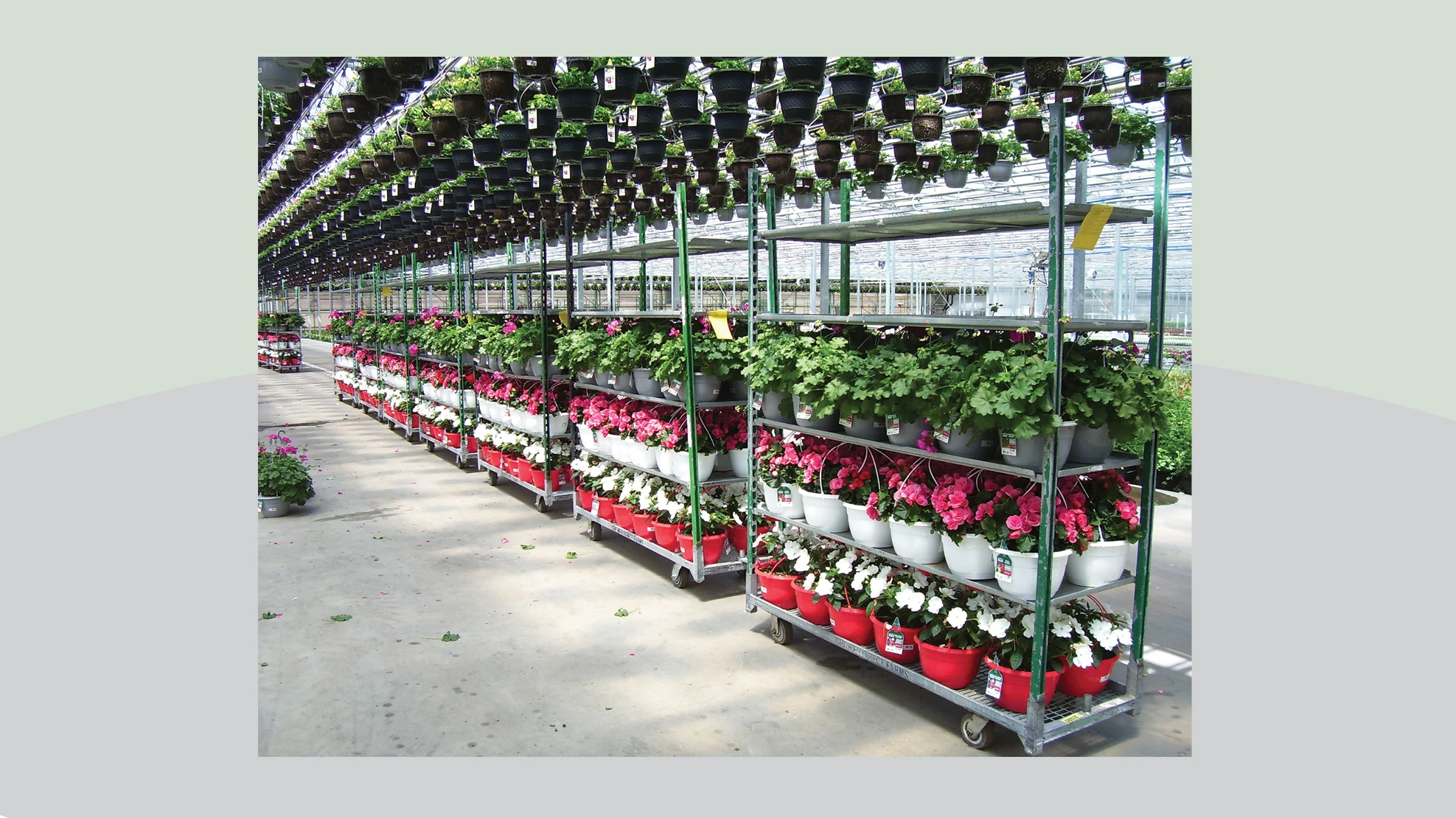
Photo courtesy of Michigan State
In early June, Michigan State University announced that it would be hosting its annual trial gardens despite the ongoing coronavirus pandemic. (You can read more here). The trial garden’s opening was accomplished at the expense of other events that raise money for the extension. Those events include fundraising event, outreach classes for the public and weddings. Kirsten Getter, director of MSU’s Horticulture Gardens, estimates that there will be a 30% income loss this year for the department and asked people to give, if they can, here.
Below, Getter and trial gardens director Daedre McGrath shares how that was accomplished.
Greenhouse Management: What is it like working at a university amid a pandemic?
Kristin Getter: As a director, for me, I have to get approval to do everything. For instance, if I wanted to have people in the greenhouses in March to keep the plants alive, we had to get approval. We had to get approval for the staff to work in the gardens too. It’s a lot of paperwork. [For the trial gardens,] we could only have one employee there at a time and normally, we’d have students that do watering and other tasks for us. It’s been a lot of back to basics. Of course, there’s good reason to take all of these precautions.
Daedre McGrath: It was not just taking an inventory of plastic stuff - it was stuff that depends on us for its survival. At the beginning, it was making sure we could keep everything alive that was our No. 1 priority. That's just stressful - there's only so many hours in a day and water alone was taking up an incredible amount of time because we could only have one employee here at a time. We normally have students that do watering for us, so I got to back to basics for us and do work I don't normally get to do. That means watering and weeding and things like that. In that sense, it was nice to get back to some hands-on stuff.
GM: Was there a concern that the trials weren’t going to happen this year at all due to COVID-19?
KG: We were very concerned that we weren’t going to be able to do it. Because the trials are so important to the industry, we decided to cancel some other things first because with limited staff, we just couldn’t do everything. So we canceled our spring plant sale — that’s our major fundraiser — and that freed up a ton of time.
We just kept being persistent with our administration and making the case that this is really, really important. They finally agreed. We came up with a good argument, especially considering that Spring Trials was canceled and such.
DM: For me, on a week-to-week basis, we didn't know the status of things. At one point, we thought we might be shutdown completely - no one going into the greenhouses. We had thought we might have to let everything die, but that turned into letting the plant sale stuff die and keep the trial material alive. There were seeds I didn't know if I'd be able to plant outside, so there were also `concerns about getting things planted on time and not knowing if we'd ever get to the end result.
GM: What other changes have you made for the trial amid current events?
KG: We’re moving our plant trial field date for the industry, which is normally in person and in August. That’s now going to be virtual. We’re not canceling our field day or changing the time of year when it happens. Our trial gardens are still open to the public, too. It’s a gateless garden, free admission. It’s open all the time for visitors. ... We are still participating in the Michigan Garden Plant Tour too. The only difference is we aren’t doing guided tours like we normally do. We won’t have a volunteer greeting people like we normally do. Information will be on the site and visitors can take a self-guided tour at their own pace.
DM: In a normal year, I would have two or three students dedicated to just helping me. This year, I just have one dedicated to the trial garden and they are doing an internship. Most other days, I have once student helping out with various tasks and helping us get work done. We also usually have a number of volunteers helping out that we just don’t have right now. They could come in for maybe three hours at a time and get a lot done. With this whole situation, we hope to be able to bring in some more volunteers soon, but that has its own large set of paperwork and restrictions we have to take into account. Free help is not the simplest thing right now. ... It's hard to know exactly when this will be how we are used to it.
Latest from Greenhouse Management
- Society of American Florists accepting entries for 2025 Marketer of the Year Contest
- Sustainabloom launches Wholesale Nickel Program to support floriculture sustainability
- American Horticultural Society welcomes five new board members
- Color Orchids acquires Floricultura Pacific, becoming largest orchid supplier in U.S.
- American Floral Endowment establishes Demaree Family Floriculture Advancement Fund
- The Growth Industry Episode 3: Across the Pond with Neville Stein
- Flowerful growth
- The Growth Industry Episode 2: Emily Showalter on how Willoway Nurseries transformed its business






